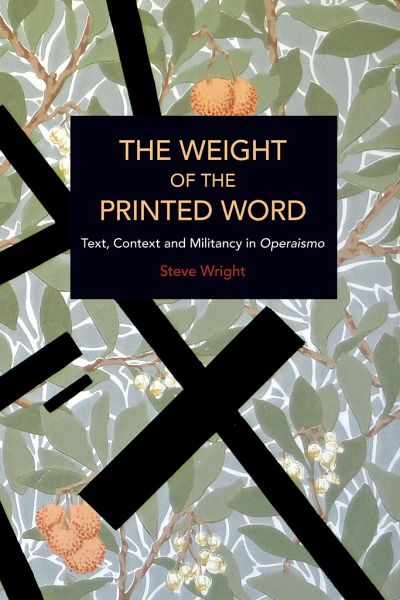
The Weight of the Printed Word
Text, Context and Militancy in Operaismo

PAYBACK Punkte
25 °P sammeln!
In The Weight of the Printed Word, Steve Wright explores the creation and use of documents as a key dimension in the activities of Italian workerists during the 1960s and 1970s. From leaflets and newspapers to books, internal documents and workers' enquiries; the operaisti deployed a wide variety of printed materials in their efforts to organise among new subjectivities of mass rebellion. As Wright demonstrates, the practice of working with print was a central part of what it meant to be a workerist or autonomist militant during these years: one that throws light both on the meaning of politic...
In The Weight of the Printed Word, Steve Wright explores the creation and use of documents as a key dimension in the activities of Italian workerists during the 1960s and 1970s. From leaflets and newspapers to books, internal documents and workers' enquiries; the operaisti deployed a wide variety of printed materials in their efforts to organise among new subjectivities of mass rebellion. As Wright demonstrates, the practice of working with print was a central part of what it meant to be a workerist or autonomist militant during these years: one that throws light both on the meaning of political engagement, as well as the challenges posed by the use of technologies of communication and by emergent social subjects.




